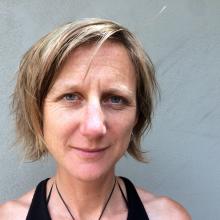
It’s a complex business, the naming of people and things. And there are laws about it, of course, writes Liz Breslin.
Whether you’re registering a birth or a company, you can’t be offensive, ranked, titled, numerical or abbreviated. If, for example, you’re thinking about calling your offspring Juztice1, or your collective, Sh*t Productions, then you are sh*t out of luck. The thing is, though, what’s on the certificate often doesn’t seem to stick, particularly in the case of people. We’ve been applying "eke names" to people since before the term got coined in the Middle Ages. Eke names eked themselves out into neknames and nek minute we had nicknames.

"What’s in a name?" the Bard, as he is nicknamed, asked. An awful lot, it seems. Nicknames come from so many sources, and tell us so much about ourselves. They can be a measure of physical attributes; Brace Face, say, or Slim Shady. Those two also give linguistic qualities we love in nicknaming. A rhyme or alliteration. They might reflect personal qualities. Ripper, you’re so, well, ripped. Sugar, you’re so sweet. Jugs, here’s looking at you. Animal, or inanimate associations; Toadface, Dustybin. Diminutive demonstrations of love, like that lovely French phrase for being a little cabbage. Workplace shorthands. Social standings. Historical importance; just ask Honest Abe or Thatcher the Snatcher. And then there are the blokey mating ritualistic nicknames where they all slap each other heartily and grunt words like Grobbly and Dump. They too play their cultural part.
Because we are different things to different people, nicknames make sense of not just a person, but their status and relationships in a pairing or a group. Thus it’s totally possible to be all of Eggy Breggy, Floella, DeadHeatInAZeppelinRace, Zeppelina, Bizzibutt, Riz, Wizzy, Honeypop and The Bulldozer (to pick some random names, you understand) over the years and the miles.
In interpersonal relationships, the giving and receiving of nicknames is like a conference and confluence of power. Your nickname, should you choose to accept it, is BigWang. Good to go then. Or FourEyes. Or Tub. Or other such jibes. Because people can be so mean.

Carol J. Bruess, director of family studies at the University of St Thomas, Minnesota, has done some research into how we are affected by, and grow into, and out of, our nicknames.
"I think it’s a really human, natural behaviour to take language and shape it for our own purposes," she says.
"I think that’s how nicknames evolve. We name things, we give things symbols, and over time we tend to naturally manipulate those symbols toward a certain outcome."
Thinking about nicknames in the US leads pretty quickly to memes about personalised rapper names and a Sportsjock Jnr II kind of vibe. Nicknames, collectively, can say a lot about national identity as well as the individual. In New Zealand, we’re still relatively remarkable with our choices of nicknames. A ball-mauling team that sports Bender, Nuggy, Udon, Guzzler and Beaudy. A political gamut from King Dick to Crusher. A general tendency to slice off the ending and add an -o. She’ll be abbreviated. And elbow-jostled. She’ll be right.












